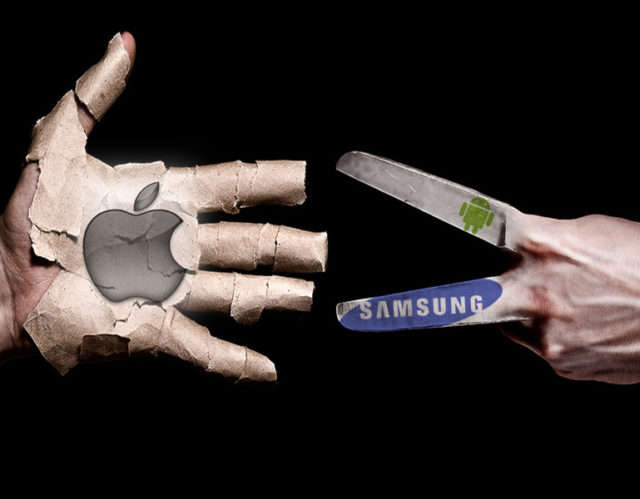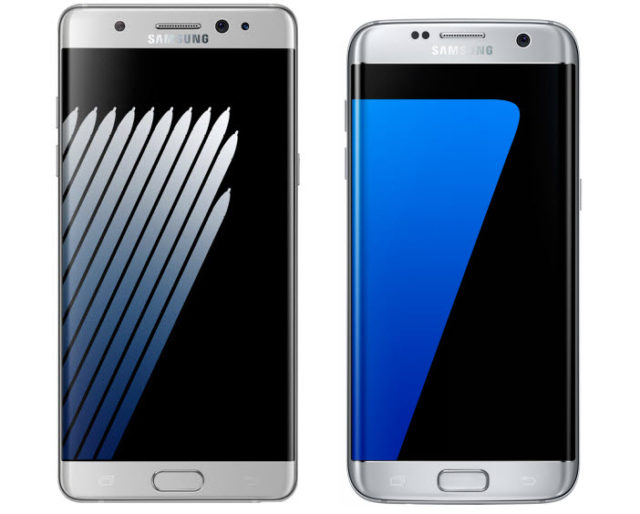A short essay from one of the Forbes editors about how one manufacturer is helping Android fight its main competitor ..

Sometimes the numbers hide the truth. In the world of smartphones, the sales of devices based on Android significantly exceed those of iOS – competitors. According to Kantar Worldpanel, Android has about 80% of the market, iOS is far behind and is in second place. Looking at these numbers, you can say that Android 'wins', but market share alone is not enough. There are other metrics that need to be taken at the same level as market share. To begin with, you can remember the profit share. From this perspective, the companies will not only switch places, but Apple will also have another advantage: 90% of the profits from smartphone sales go directly to Cupertino. Profiting from sales through the app catalog is another strength of the company under the leadership of Tim Cook. In terms of economic indicators, Android fails to catch up with iOS.
Be that as it may, thanks to a single company Android, it still claims the place of honor. Without Samsung, Android would be left with a small group of comparatively smaller manufacturers (such as Huawei), who occasionally attempted to target the top price segment and many budget devices with corresponding pricing policies. Apple dominates the premium segment, Samsung has a good 'fight back', everyone else is somewhere far away. From time to time, various manufacturers have made serious efforts to release Android – a smartphone and endow his laurels of the best apparatus within the platform. Only a few managed to achieve success, but they had to work hard to consolidate it. Sony is a good example. While it took a lot of trying to fix the design issues, the Xperia line offered users a better user experience Android, whereby the company gained critical acclaim, but the line was still not popular with customers.
Over the past few years, Samsung has gotten as close as possible Motorola, but the transition from one 'hands' to another has left the company without any adequate strategy for the next two years. Recent Moto phones have performed quite well, but their level is far from successful sales and record revenues. Google Nexus devices are rightfully considered to be technologically disruptive, as they are at the forefront of software design, but sales of smartphones branded by the Mountain View corporation are not even close to those of the Galaxy line. The Nexus is a great choice for developers and geeks, but the brand has yet to achieve widespread acceptance.
If you remove Samsung from the 'battlefield', then the strengths of Android can be called Chinese manufacturers, such as Huawei, and the dominance of budget devices in the BRICS countries. This arrangement guarantees the volume of sales, but by no means profit, nor does the image or desire of consumers to shell out money for a third-party ecosystem to reward developers and advertisers.

Samsung's strategy has been responding to these challenges for years. The South Korean company's innovations applied to smartphones ensured sales equivalent to those of iPhone. The S7 line of smartphones has similar characteristics and are leaders in terms of performance, not to mention the 'stuffing'. The focus on design is supported by marketing budgets that cement the company's image in the minds of consumers. There is a 'Galaxy versus iPhone' standoff in many countries and copyrights, and Samsung is investing heavily in this battle. Risky decisions and rationalization of the product line helped the mobile division to stem the fall in profit and revenues after a two-year decline. And the situation looks encouraging, even though there is still six months ahead. Of course, Samsung is increasing sales both in the middle and in the budget segments, but they only benefit from the marketing of flagships and the company intends to invest in its ecosystem in order to be able to compete with Apple.
Without Samsung's dominance, the platform Android would have had a tough time, especially compared to the profit-focused approach Apple. The relationship between Samsung and Android is built on symbiosis, and its termination is fraught with very negative consequences for both parties. Google understands this, Samsung also knows, but Apple also knows ..
Original material by Evan Spence
No, this is not an ode to Samsung, it is simply impossible not to recognize the success of the company, which was able to take risks and improve its position, moreover, to take the leading positions in the market. Like any popular company, Samsung has rather controversial decisions, which, as a rule, are corrected in the next generations of devices. For example, judging by the sensational video, the Note 7's screen is not resistant to scratches and is inferior in this parameter to the S7, however, it handles falls very well and does not bend. Well, no one canceled the problems with performance that are passing from generation to generation, the new product loses outright in terms of speed iPhone 6s ..
Still, the rest of the S7 series devices look very good and in any case will bring the company a proper profit, most likely, the bet on design, coupled with investments in marketing, worked. Could this be the starting point for the South Korean company to dominate Apple? It's hard to say, Cupertino certainly has its own surprises and unexpected moves. The essence of the article: it seems to me that it is not entirely advisable to make such comparisons. Now, if Samsung would have succeeded with devices based on Tizen, then it would be another matter. And so, Google is unlikely to contribute so much to the prosperity of its seemingly friend and, it seems, rival. In your opinion, will one manufacturer Android – devices single-handedly compete with Apple? Or does all this holy war no longer make any sense to us users?
